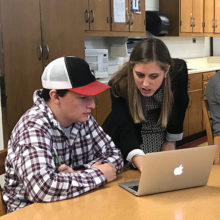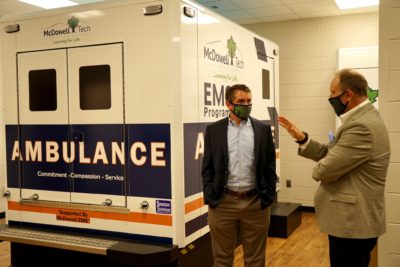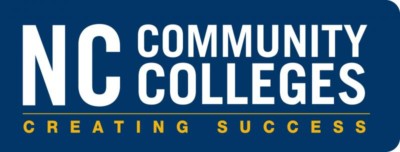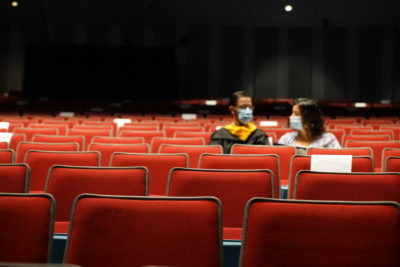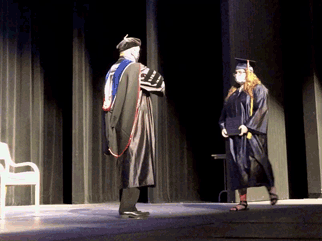

Jack Bagwell became president of College of the Albemarle (COA) in December 2019 after serving for more than 20 years in the South Carolina community college system. Within four months, he was in uncharted territory.
“It’s been surreal,” Bagwell said, describing his experience taking the helm as a first-time president in December.
“There’s nobody you can ask because nobody’s been through it. So you can’t pick up the phone and call a seasoned president or a seasoned anything and say, ‘Hey, last pandemic, what did you guys do when you shut the country down?’ There is no framework.”
We recently sat down with Bagwell to talk about his experience becoming a new president in the midst of a pandemic. The day we visited, July 29, COA was holding a “drive-through” graduation ceremony for students.
Donning his regalia for the first time, Bagwell gave out elbow bumps as students crossed the stage to receive their diplomas.

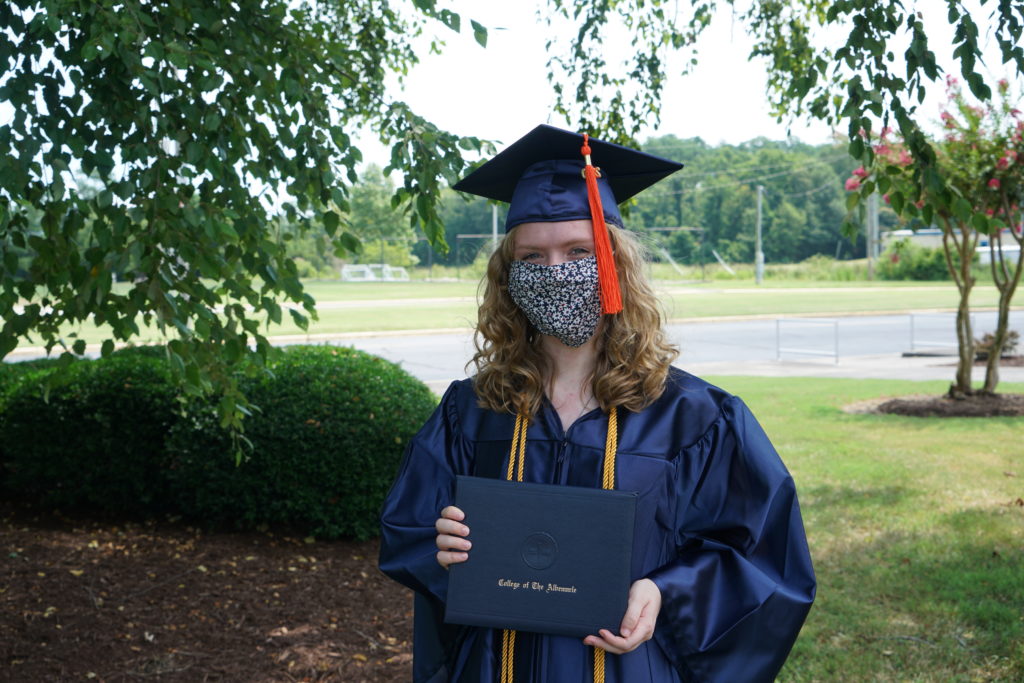
COA graduate Isabelle Wilson receives her diploma. Alli Lindenberg/EducationNC 
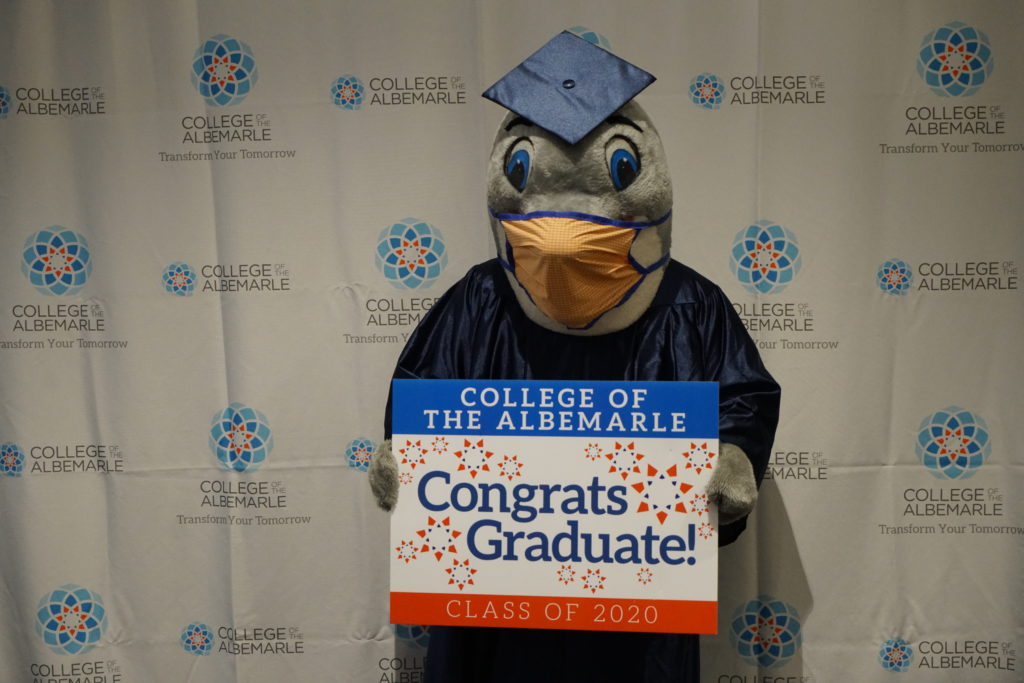
Fin, COA’s mascot, was on hand in his mask to celebrate the graduates. Alli Lindenberg/EducationNC 
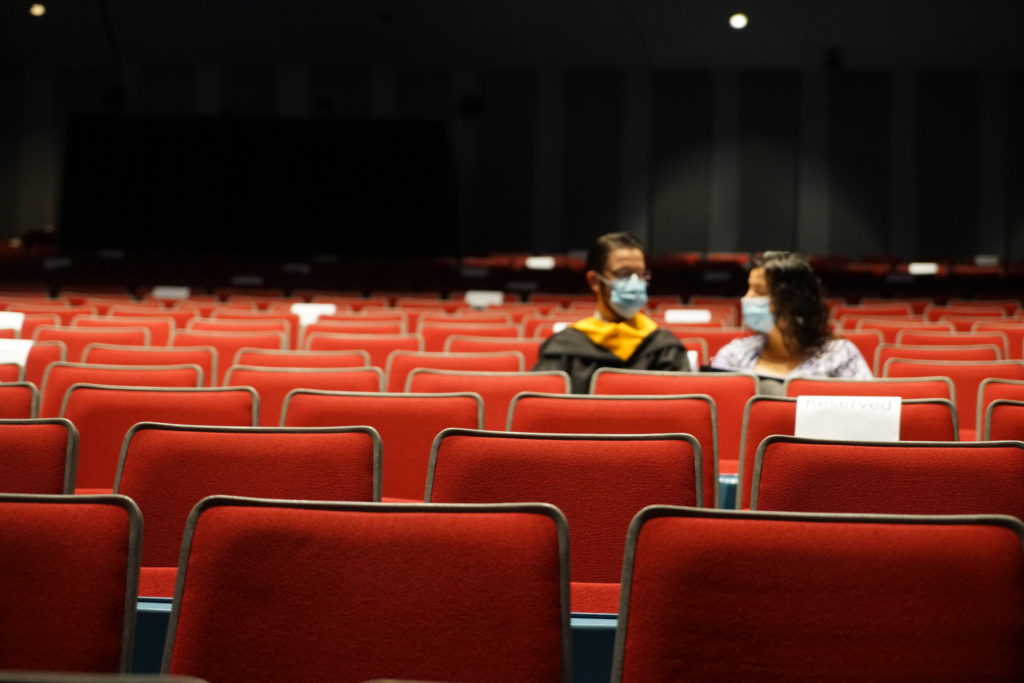
A graduation ceremony at College of the Albemarle looks much different due to COVID-19. Alli Lindenberg/EducationNC
During the first few (pre-COVID) months of his presidency, Bagwell held a series of meet and greets throughout the community. College of the Albemarle serves seven counties in the northeastern part of North Carolina and has four campuses.
When the pandemic hit in March, Bagwell and his staff met every morning and worked on a plan.
“While it was scary, because there’s no path, it was also — there’s no speed limit sign, because nobody’s built the road,” he said.
The experience helped Bagwell quickly get to know his team. Because he focused on getting out in the community in the early months, he did not have the chance to assess his new team. Responding to COVID-19 showed him their strengths and weaknesses as well as confirmed his own, he said.
“I still am this, you know, stepdad that came into the house and hasn’t really been at a family dinner too many times,” he joked.
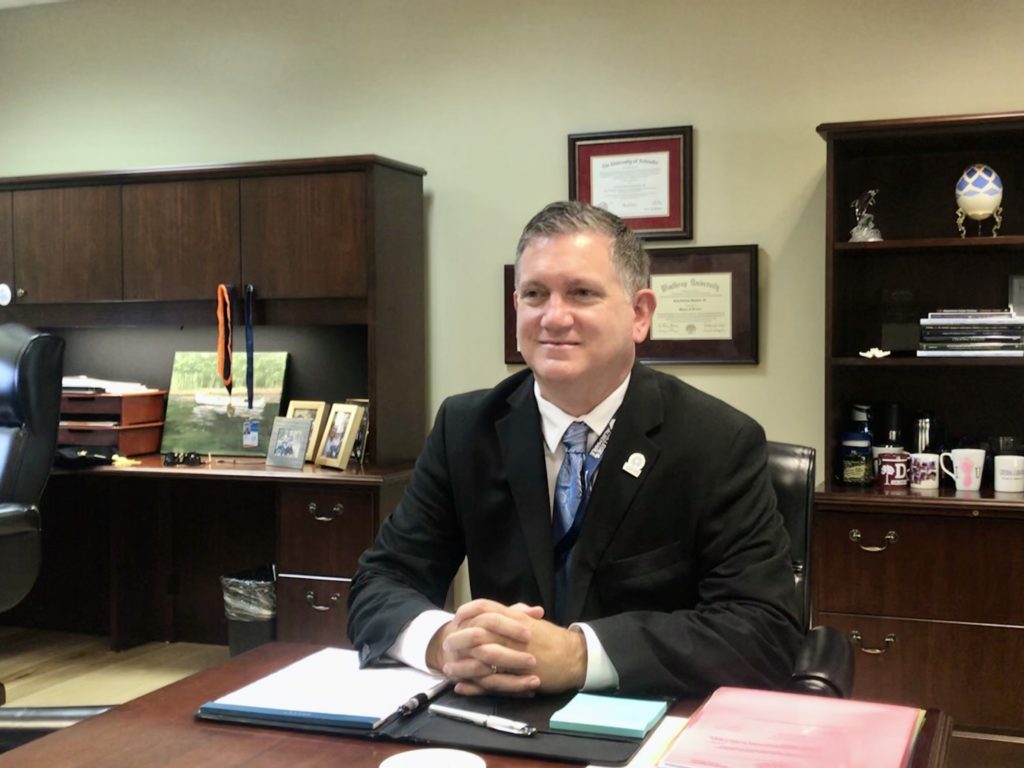

In the early months of the pandemic, what kept him up at night was the health and safety of students, faculty, and staff. Now, he stays awake thinking about the many factors that go into reopening for the fall semester.
“In the beginning it was the known that kept me awake,” Bagwell said. “This is a pandemic. We know this is dangerous. We know we got to get people out. We know we’ve got to change our classes. Now it’s what am I not thinking about? What have I not considered? You don’t know what you don’t know.”
One of the challenges of reopening this fall is the fact that many of the surrounding school districts are starting school remotely, so faculty who have in-person courses are in a bind.
“We’ve got something like eight faculty members in our nursing allied health area that have kids,” Bagwell said. “What are we going to do with those kids? Do we have kids on campus?” he asked.
Robin Harris, dean of health sciences and wellness programs, said they are talking with the YMCA that shares their health sciences building to work out a child care option for their faculty.
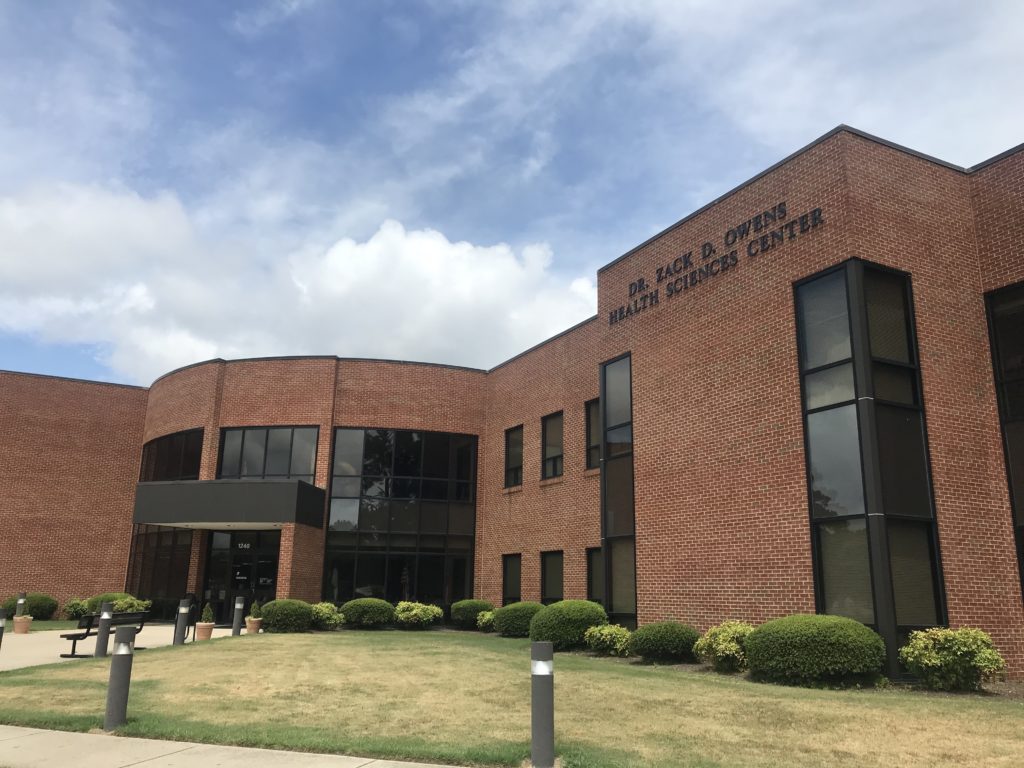

Another challenge is the question of what enrollment will look like for the fall. Recruiting students is a different ballgame when most of the recruiting staff are teleworking at home. Additionally, the counselors they rely on to inform high school students of Career and College Promise dual enrollment options and help them complete their applications have not been with kids since March.
For COA and many other colleges, the potential loss of Career and College Promise students is significant. In spring 2020, COA had 1,242 dual enrollment curriculum students, which made up 47% of their total curriculum student enrollment that semester. A decline in dual enrollment will likely mean a decline in overall enrollment.
During his interview process, Bagwell identified the growing reliance on dual enrollment students as an issue. “You’re too connected to any one population and something happens, it hurts,” he said. He came into COA looking to grow their adult student population, but COVID-19 has sidetracked that plan for now.


One silver lining is that tourism does not seem to be negatively impacted by the pandemic. Anecdotally, Bagwell said, more people are visiting the beaches as families find new ways to vacation this summer. That is good news for county tax revenues, he said, which help fund things like new buildings for the college.
Bagwell is also hopeful they can use the lessons they’ve learned to provide more opportunities for the region moving forward.
“I’m hopeful that we are going to learn as much as quickly as anyone and be able to leverage those new learned lessons to bring more learning to our region, more opportunities for learning to our region,” he shared.
Despite the pandemic, Bagwell said he is excited to be part of a system that has made great strides over the last year.
